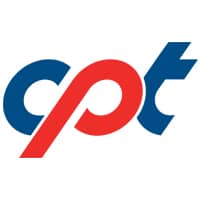Did you know that the manner in which OTC Drug Monograph products are regulated within the USA is currently undergoing major changes? Obtaining a clear understanding of the OTC Drug Monograph System used to be a complicated undertaking but now that OTC Drug Monograph Reform is underway, it has become an even more daunting task. Read on if you want to make sense of all of this…
What are Over-The-Counter (OTC) Drugs?
OTC Drugs are drugs that are available to consumers without a prescription. They are self- selected and used by the consumer without the supervision of a health care practitioner. Typically, OTC Drugs have a low potential for abuse and in FDA’s estimation, the benefit of their over-the-counter availability outweighs the risks.
What are the Regulatory Pathways for Marketing OTC Drugs?
- New Drug Application/Abbreviated New Drug Application (NDA/ANDA)
- Application submitted to FDA for premarket approval.
- Safety and effectiveness of the drug product must be demonstrated through testing.
- Can only be marketed after the NDA/ANDA is approved by FDA.
- Product-specific.
- OTC Drug Monograph
- Premarket approval (NDA/ANDA) not required if the drug complies with Section 505Gof the “Federal Food, Drug and Cosmetic Act” (FD&C Act) and any applicable conditions/requirements found in an OTC Drug Monograph.
- Testing to determine safety and effectiveness of the individual drug product is not required unless the OTC Monograph requires such testing of the final formulation.
- Therapeutic category-specific, based upon active ingredients and other conditions.
What is an OTC Drug Monograph?
A “rule book” for each therapeutic category of drug which establishes conditions such as allowable active ingredients, uses (indications), doses, route of administration, labeling, and testing under which an OTC Drug is Generally Recognized as Safe and Effective (GRASE).

History of the OTC Drug Monograph System:
- Established in 1972, for the purpose of evaluating the safety and effectiveness of OTC Drug products that were marketed in the US prior to May 11, 1972.
- Established GRASE (Generally Regarded as Safe and Effective) conditions for each OTC therapeutic drug class in the form of OTC Monographs.
- Three-phase public rulemaking process to establish each OTC Monograph.
- Phase 1: Advance Notice of Proposed Rulemaking (ANPR) followed by public comment.
- Phase 2: Tentative Final Monograph (TFM) followed by public comment.
- Phase 3: Final Monograph that is published in the Code of Federal Regulations (CFR). *In effect until the “Coronavirus Aid, Relief and Economic Security Act” (CARES Act) was passed on March 27, 2020.
GRASE Categories of OTC Drug Monograph Active Ingredients
Category I: GRASE.
Category II: Not GRASE.
Category III: Insufficient data to determine if GRASE.
The “CARES Act” – OTC Drug Monograph Reform
The CARES Act includes a legislative initiative that reforms and modernizes the manner in which OTC Monograph Drugs will be regulated in the US.
- Modernizes the OTC Drug Monograph System and OTC Monograph drug development process.
- Provides FDA with the authority to collect user fees that will be dedicated to OTC Drug Monograph activities.
Which Parts of the OTC Drug Monograph System will remain the same?
- Active ingredients will still be grouped by therapeutic category.
- GRASE determination of active ingredients.
- Drugs complying with OTC Monograph and other applicable requirements may still be marketed without FDA approval.
- Process includes a public comment period.
Which Parts of the OTC Drug Monograph System will change?
- The three-phase rulemaking process (ANPR, TFM and FM) will be replaced with an Administrative Order process.
- Clarification of status of existing OTC Monograph Drugs including drugs previously subject to TFMs and ANPRs.
- Process for minor changes in dosage forms.
- Exclusivity period for certain OTC Monograph Drugs.
- Implementation of OTC Monograph user fees.
- Formal meetings between FDA and Sponsors.
- Sponsor-submitted information will be maintained as confidential by FDA.
Administrative Order Process
- Replaces the three-phase rulemaking process.
- Gives FDA the authority to issue an Administrative Order that adds, removes or changes GRASE conditions for an OTC Drug Monograph.
- Establishes an expedited process to address safety issues in a timely manner.
- Either Industry or FDA can initiate the Administrative Order process by filing an “OTC Monograph Order Request” (abbreviated as OMOR).
- FDA Initiated: FDA issues “Proposed Order” → Public Comments → FDA issues “Final Order”.
- Industry Initiated: Submit OMOR → FDA files OMOR → FDA issues “Proposed Order” → Public Comments → FDA issues “Final Order”.
So what will be the ultimate impact of OTC Drug Monograph Reform?
- Clarification of the status of existing OTC Drug Monographs.
- Those active ingredients currently identified as Category I (GRASE) may remain on the market.
- Those active ingredients currently identified as Category III (GREASE not yet determined) may remain on the market until FDA issues a “Final Order”.
- Those active ingredients currently identified as Category II (Not GRASE) will be removed from the market
- If no active ingredient within an existing Monograph (therapeutic category) is GRASE, the Monograph itself may be eliminated.
- Final Orders will be posted on FDA’s public website.
- Existing Final Monographs will be removed from the CFR.
- Collection of two types of OTC Drug User Fees:
- Facility Fees (due annually).
- OTC Monograph Order Request (OMOR) Fees (due upon submission of an OMOR).
A Note on Sunscreen OTC Drug Products
- The “Sunscreen Innovation Act” (SIA) will be replaced by OTC Drug Monograph Reform on September 30, 2022.
- In the interim, FDA is required to issue a “Proposed Order” for OTC Sunscreen drug products no later than September 27, 2021.
- FDA’s “Proposed Order” could result in changes to required testing of sunscreen products and/or GRASE re-categorization and possible elimination of some sunscreen active ingredients currently listed in the OTC Monograph.
Let CPT assist in the planning, testing and launching of your OTC Monograph Drug products in the USA.
Change is already underway with regard to the regulation of OTC Drug Monograph products in the USA. We can tell you how your currently marketed OTC Drug product or the one you intend to launch might be affected by the new OTC Drug Monograph Reform regulation. Let us assist you in identifying and conducting all testing that is required for maintaining compliance of existing products and for the legal launching of new products.
CPT’s state-of-the-art Analytical Chemistry, Microbiology and Photobiology Laboratories are professionally staffed and stand ready to assist you in meeting all of your planning, testing and compliance needs. Why not contact us today?

